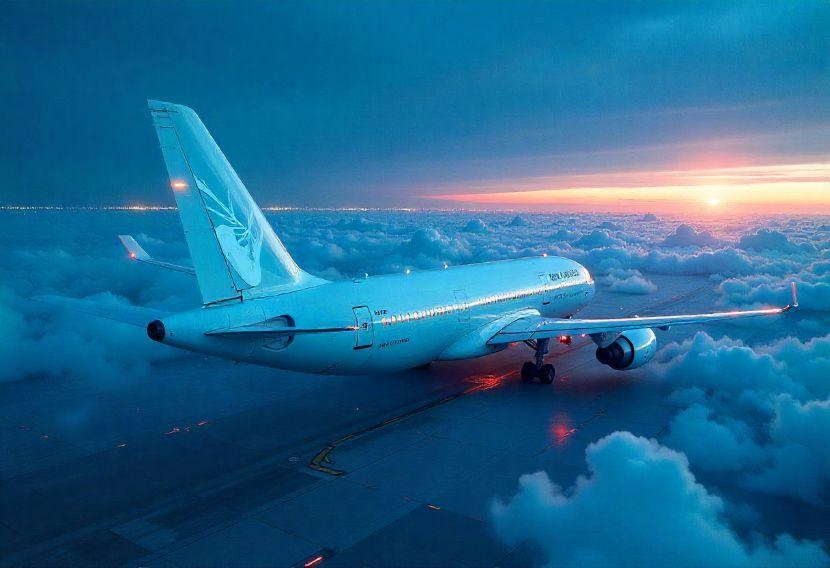エアロジニー — あなたのインテリジェントな副操縦士。
現在のトレンド
Categories
Ethiopian Airlines Encounters Obstacles in Russian ACMI Leasing Agreement

Ethiopian Airlines Encounters Obstacles in Russian ACMI Leasing Agreement
Ethiopian Airlines is confronting significant challenges in its proposed ACMI (Aircraft, Crew, Maintenance, and Insurance) leasing agreement with Russia. What initially appeared as an opportunity for operational expansion has become a complex issue, complicated by international leasing restrictions and escalating geopolitical tensions. These factors collectively threaten the feasibility of the agreement and highlight the broader difficulties facing the global aviation sector.
Leasing Restrictions and Aircraft Access
A primary obstacle arises from Ethiopian Airlines’ dependence on leased aircraft, many of which are owned by international lessors. These lessors retain the authority to approve or deny the use of their aircraft in specific airspaces. Leasing contracts commonly prohibit operations in regions deemed to have elevated safety risks or political instability—conditions that currently apply to Russian airspace amid ongoing geopolitical conflicts. Additionally, lessors express concerns regarding the quality of maintenance and regulatory oversight in Russia, further complicating negotiations.
These issues have been intensified by recent developments in the aviation leasing market. The high-profile $344 million insurance claim settlement by Air Lease Corporation, following the loss of aircraft stranded in Russia after the Ukraine invasion, has underscored the financial and operational risks associated with leasing to Russian entities. This precedent has heightened scrutiny from lessors and insurers, making them increasingly reluctant to authorize their aircraft for use in or near Russian territory.
Maintenance, Repair, and Overhaul (MRO) Challenges
Russia’s restricted access to imported aircraft parts, due to international sanctions, has compelled its airlines to explore alternative maintenance solutions. One such proposal involves establishing MRO services in Ethiopia to circumvent sanctions that prevent Russian-owned parts from being serviced elsewhere. However, Ethiopian authorities remain cautious about the practicality of this approach, given the stringent international sanctions targeting Russian aviation.
The reluctance of global MRO providers to engage with Russian-linked companies further narrows available options. Most facilities in countries enforcing strict export controls are unwilling to risk violating sanctions, making it improbable that Ethiopian-based MRO services could fully meet the maintenance needs of Russian aircraft under the proposed ACMI agreement.
Broader Market Impact and Strategic Uncertainty
The difficulties faced by Ethiopian Airlines are reflective of wider trends within the aviation industry, which is increasingly wary of the risks associated with Russian partnerships. Competitors may seek to exploit these challenges by pursuing alternative routes and leasing arrangements, while airlines and lessors reassess their exposure to geopolitical instability. These dynamics could precipitate shifts in airline alliances and strategic partnerships as companies strive to mitigate risk.
For Ethiopian Airlines, the financial pressures and operational uncertainties linked to the Russian ACMI agreement could influence its market position and strategic direction. With global oversight of aircraft parts and maintenance tightening, and with lessors and insurers adopting a more cautious stance, the future of this agreement remains uncertain.
In sum, Ethiopian Airlines’ efforts to finalize an ACMI deal with Russia are being hindered by a combination of leasing restrictions, maintenance challenges, and the broader repercussions of geopolitical tensions—factors that continue to reshape the global aviation landscape.

Archer Aviation Partners with NVIDIA to Advance Aviation AI Technology

Chennai Startup to Develop India’s First Electric Air Taxi

Factors Positioning Airbus for Leadership in 2026

Emirates Unveils Cabin Design for New Boeing 777X

Eighteen Years On, the Airbus A380 Remains Central to a $34 Billion Airline

How a boom in luxury airline seats is slowing down jet deliveries

Navitaire Outage Attributed to Planned Maintenance

AI, VR, and Data Transform Pilot Training by 2026

Airbus Plans Record Delivery of 870 Aircraft in 2026

DigiYatra Debuts Outside Aviation at India AI Impact Summit
